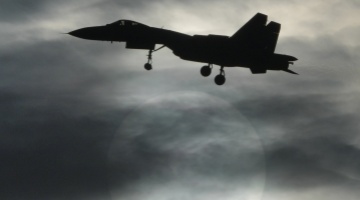By Zi Ge
According to media reports, the Japan Ministry of Defense (JMOD) planned to set up a new innovation research management agency in 2024, and has already drawn up the outline of the new mechanism. With the aim to tap into civilian technologies with potential military application, the agency will model after the US Defense Advanced Research Projects Agency (DARPA) by promoting the participation of civilian institutions in military high-tech research and development through means including providing financial support.
Focusing on tapping into new technologies with military prospects
The new agency will come under the JMOD and be managed directly by the Acquisition, Technology & Logistics Agency (ATLA). A hundred of professionals from the government and the private sectors will serve as project managers of the agency, mainly responsible for project selection, personnel recruitment, technical management and fund allocation affairs, etc.
The project managers will channel investments into research projects that enable technological innovation in the military domain, which are open to universities, enterprises, and research institutions. The annual fund support for each project ranges from tens of millions to hundreds of millions of yen (1 yen equals about 0.007 US dollars). The new agency operates with a loose fault-tolerance mechanism, granting exemption from refunding capital for investment projects that fail within a three-year timeframe.
In fact, the ATLA had started to develop investment plans for advanced civilian technologies with potential military applications since its inception. In 2015, the JMOD established the "System for the Promotion of Technology Research in Security Support" to provide subsidies for relevant civilian technology research, focusing on key technologies capable of significantly improving equipment performance, innovative technologies enabling new concept equipment and rapidly applicable strategic frontier technologies. Nevertheless, the development of civil-military dual-purpose technologies in Japan has not yielded significant results under the program. In August 2022, the Japanese government held a conference on the cultivation programs of key technologies for economic security to deliberate on the replication of the DARPA model by a specialized agency led by the JMOD to facilitate this initiative.
Self-evident attempt to pursue military power
The establishment of the new agency will bring great changes to the development of defense technologies in Japan, which are mainly identified in the following three trends.
First, to shatter the customary practice in the scientific community of excluding military usage. For long, only Japan's Mitsubishi Heavy Industries and other large military enterprises had engaged in defense technology development, while most research institutions and universities in the country adhered to the initiative related to never conducting scientific research for military purposes advocated by the Japanese Academic Conference in 1950. After the launching of the new agency, Japan may increase investment in civilian scientific research institutions and steer them toward engaging in the military field under the banner of supporting civilian high-tech.
Second, to promote the development of next-generation disruptive defense technologies. The Defense Technology Guideline 2023 issued by the JMOD has clarified the key tasks of the countrys defense technology development in five to tenyears. Following the establishment and operation of the new agency, Japan is bound to focus on and accelerate facilitating unmanned automation, new energies, new materials, new sensors, high-performance computing, cyberspace, and other technological projects indicated in this guideline, to promote the conversion of advanced civilian technologies to military applications.
Third, to deepen military integration with the US. It was reported that during the visit to the US in January 2023, Japanese Prime Minister Fumio Kishida had coordinated on dual-use technology cooperation with the country. The US had exhibited strong interest in Japanese military technologies such as drone development, information collection and analysis based on artificial intelligence technologies, application of robots in minesweeping and laying, and manufacture of ultra-sensitive sensors for radar equipment. In the context of deepening military integration between the two countries, the new agency may cooperate with DARPA to promote in-depth bilateral exchanges in military technology innovation.
In recent years, Japan has repeatedly broken through restrictions on the export of weapons and equipment while vigorously seeking military technological innovation and strengthening weaponry research and development. It is aimed at ensuring a cohesive linkage between technology development, industrial nurturing and arms export for the pursuit of the so-called military power status, which deserves attention and vigilance from the international community.









